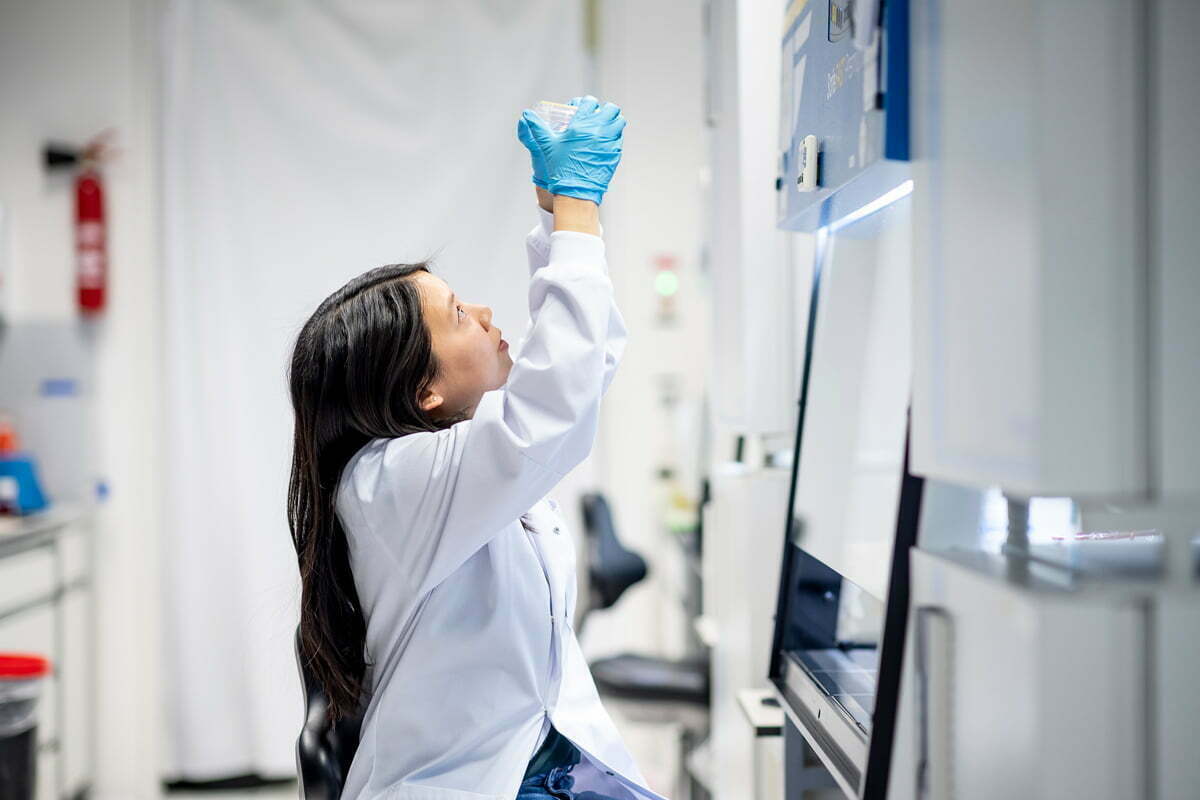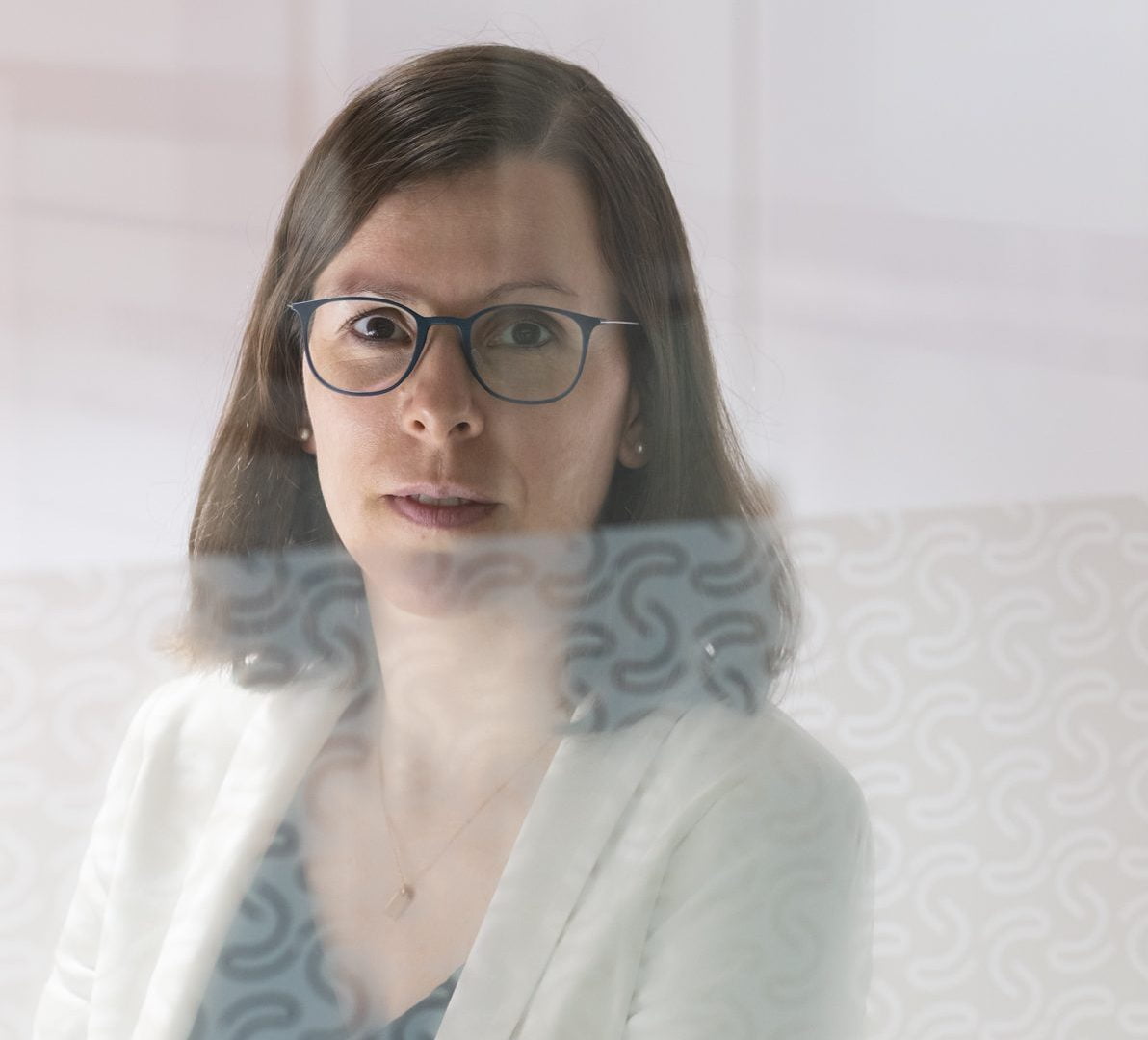Hoping to heal
With her start-up Ariya Bio, Mandy Boontanrart aims to develop a therapy for severe blood diseases. Thanks to ground-breaking discoveries in genetic research, she may not be far from making her vision come true.

© ETH Foundation / Daniel Winkler
© ETH Foundation / Daniel Winkler
Scientists can often tell a personal story when it comes to their field of research. Molecular biologist Mandy Boontanrart is no exception. At the beginning of her doctoral studies in 2015, she came across the lab led by Professor Jacob Corn, located then at the University of California, Berkeley. His research focuses on how the new CRISPR/Cas9 method for genome editing can be used in treatments for sickle cell disease, a severe genetic blood disease. The CRISPR/Cas9 method was discovered in 2012 by Jennifer Doudna and Emmanuelle Charpentier and earned them the 2020 Chemistry Nobel Prize. By enabling scientists to alter individual DNA building blocks in the genetic material, the method opens up new avenues in the treatment of hereditary diseases, such as haemoglobinopathies, which are found all over the world.
It was immediately clear to Mandy Boontanrart that she wanted to delve deeper into this field. Through a routine blood test at the age of 14, the American with Thai origins discovered that she was a carrier of thalassaemia, a haemoglobinopathy from the same group as sickle cell disease. The condition disturbs the formation of red blood cells. Depending on the severity, patients develop severe anaemia in the womb and need blood transfusions for the rest of their lives. Fortunately, Mandy Boontanrart lives without symptoms. “The doctor explained to me at the time that thalassaemia is very common among people with Southeast Asian roots and could only be treated by donor stem cell transplantation. Jacob Corn’s research challenged this, and I was determined to find out more about the CRISPR/Cas9 method.”
From the lab to the patient
For her doctorate, Mandy Boontanrart researched ways of treating the blood disease. Her approach involves taking the patient’s own stem cells, editing the genetic material using the CRISPR/Cas9 method and transplanting the altered cells back into the patient’s bone marrow.
The modified cells can then multiply in the body. Because germ cells are not changed, the modification is not passed on to future generations. Mandy Boontanrart is currently conducting her research with Jacob Corn and his team at ETH Zurich.
When she heard about the Pioneer Fellowship programme, she jumped at the chance: “With my start-up Ariya Bio, I can focus on working to achieve my goal which is to make this highly personalised therapy available to patients and play a part in curing the disease.” With the support from the Pioneer Fellowship, she has taken the leap to become an entrepreneur and learned to think from a more business-oriented perspective. “My mentor helps me to set goals aligned with my business and I’m making lots of useful contacts.”
Joint efforts to find new treatments
Mandy Boontanrart is still starting out with Ariya Bio. Together with two students, she is working on feasibility studies. If all goes to plan, in vivo studies are due to start at the end of 2022 and she’s looking for investments for clinical trials in 2023. These will also take several years. The possibility that someone else could develop an approved therapy for haemoglobinopathies before her does not worry her. “First and foremost, I’d like to see an effective therapy. Besides, there’s room for different approaches to a cure,” Mandy Boontanrart says.
It’s noticeable during the conversation how the researcher focuses on positive aspects. She sees her unparalleled optimism, coupled with her determination, as important resources for her business plans: “As a researcher and a young entrepreneur, I have to be able to deal with setbacks, not to take mistakes personally and to always keep my goal in mind, which is to improve the lives of patients in the long term.”



